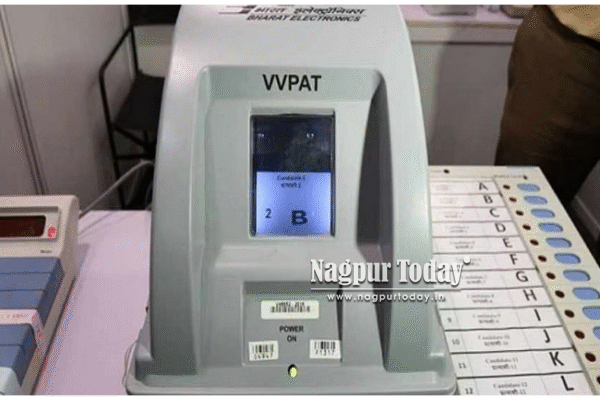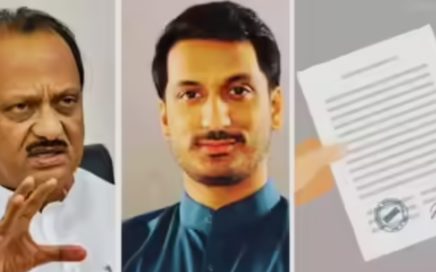
Nagpur: The Maharashtra State Election Commission (SEC) has urged the Nagpur Bench of the Bombay High Court to dismiss a petition seeking the use of VVPAT (Voter Verifiable Paper Audit Trail) machines in the upcoming local body elections, asserting that the demand is neither legally permissible nor technically feasible under the present framework.
The SEC’s detailed affidavit, filed by Deputy Secretary K. Suryakrishnamurty, was submitted before the court on Tuesday. After receiving the document, the court adjourned the matter for further hearing on Wednesday.
Petition seeks VVPAT or return to ballot papers
The petition, filed by Congress National Secretary Prafulla Vinodrao Gudadhe, argues that the introduction of VVPATs, or alternatively a return to paper ballot voting, is essential to ensure transparency, restore public confidence in electronic voting, and prevent electoral disputes. Gudadhe contends that the absence of a paper audit trail undermines voter trust.
No legal basis for VVPAT in local elections
In its response, the SEC emphasized that the legal framework governing elections to Municipal Corporations, Zilla Parishads, Panchayat Samitis, and Village Panchayats does not contain any provision enabling the use of VVPATs.
While the SEC is a constitutional body entrusted with conducting local elections, it clarified that it cannot independently introduce VVPAT technology unless the State Legislature officially amends the relevant Acts.
Issue already settled in 2017
The affidavit further pointed out that the High Court had already dismissed an identical plea in 2017 in the case of Sunil Sudam Khatale-Patil vs. Maharashtra State Election Commission. The SEC argued that the present petition is an attempt to reopen a settled matter.
The Commission also stated that the petition suffers from a major procedural flaw—failure to include the State of Maharashtra as a party, even though only the State Legislature can amend the applicable laws and provide legal backing for VVPAT usage.
Technical limitations in multi-post local elections
Unlike parliamentary or state assembly elections, where each voter selects only one candidate, the SEC conducts multi-member, multi-post elections, in which a voter often casts votes for multiple positions using a single EVM unit.
The current generation of EVMs used in Maharashtra is specifically designed for this complex system.
The SEC argued that standard VVPAT machines—meant for single-post elections—are not compatible with its multi-post EVMs. Moreover, there is no approved technical design available that could integrate VVPAT with multi-post voting units.
The affidavit recalled a pilot project conducted during the Nanded Waghala Municipal Corporation election in 2017. The VVPAT experiment faced serious technical glitches, after which no committee recommended its wider adoption.
The SEC also informed the court that it had even approached the Election Commission of India (ECI) for VVPAT-compatible EVMs for the Brihanmumbai Municipal Corporation elections, since BMC follows the single-post system, but the ECI declined to provide the machines.
Switch to paper ballot impractical: SEC
Responding to the petitioner’s alternative suggestion of reverting to paper ballots, the SEC stated that such a move was entirely unworkable. The Commission informed the court that:
• It currently has zero ballot boxes in stock,
• It would need nearly one lakh ballot boxes,
• and it is impossible to design, approve, and manufacture them before the Supreme Court’s January 31, 2026 deadline for completing all pending local body polls.
The SEC maintained that its decision to conduct the upcoming elections using EVMs without VVPAT is based on legal limits, technical realities, and logistical constraints, and not on any unwillingness to ensure transparency.
SEC urges dismissal of petition
Concluding its arguments, the Commission prayed for outright dismissal of the petition. Senior advocate Pawan Dahat appeared on behalf of the petitioner.














